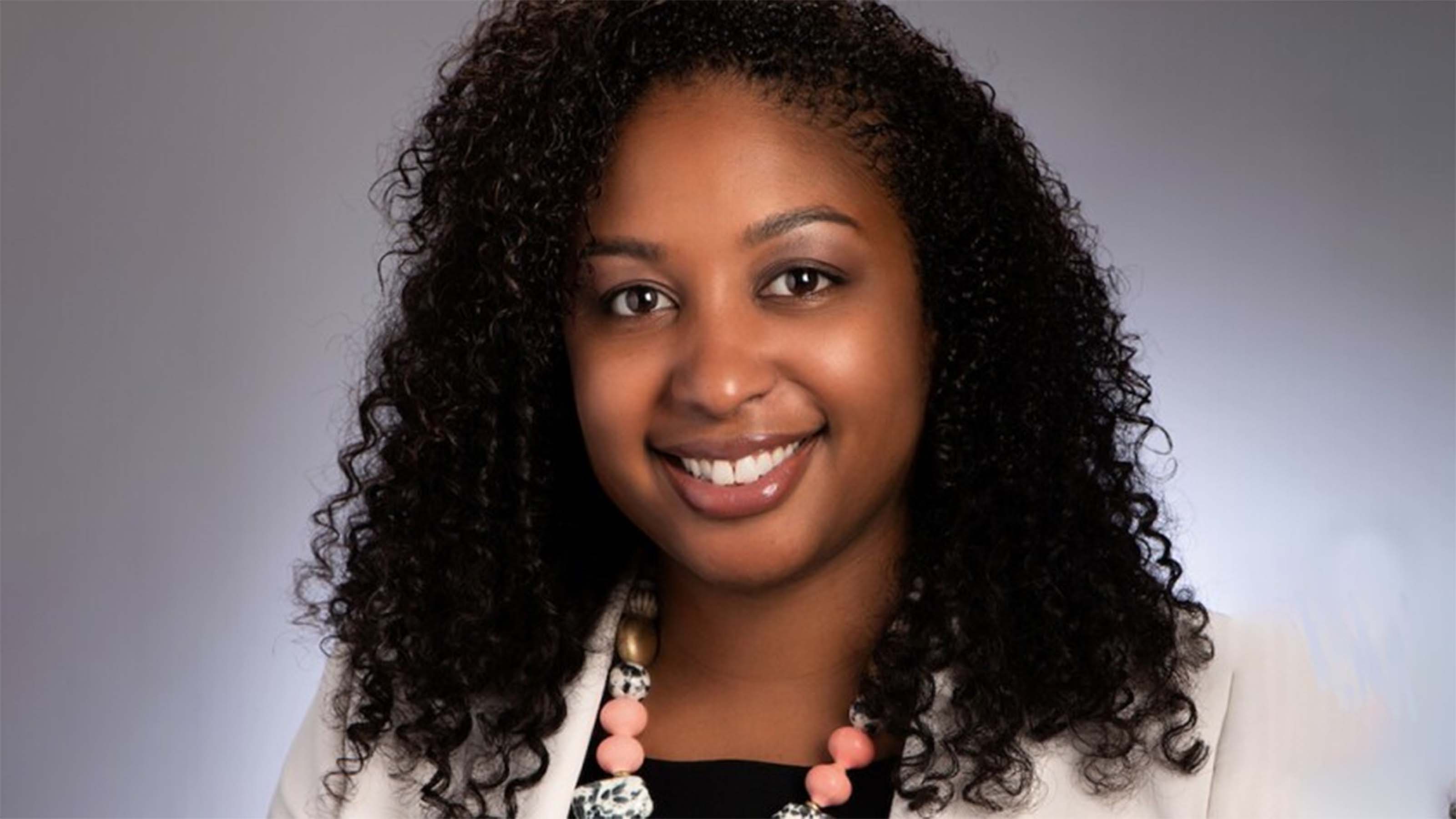Stocks to Invest in for the Next Decade
Our co-hosts Ryan Ermey and Sandy Block break down which stocks to buy and hold for the next 10 years and remind procrastinators why they should make those lingering holiday gift returns now.
Profit and prosper with the best of Kiplinger's advice on investing, taxes, retirement, personal finance and much more. Delivered daily. Enter your email in the box and click Sign Me Up.
You are now subscribed
Your newsletter sign-up was successful
Want to add more newsletters?

Delivered daily
Kiplinger Today
Profit and prosper with the best of Kiplinger's advice on investing, taxes, retirement, personal finance and much more delivered daily. Smart money moves start here.

Sent five days a week
Kiplinger A Step Ahead
Get practical help to make better financial decisions in your everyday life, from spending to savings on top deals.

Delivered daily
Kiplinger Closing Bell
Get today's biggest financial and investing headlines delivered to your inbox every day the U.S. stock market is open.

Sent twice a week
Kiplinger Adviser Intel
Financial pros across the country share best practices and fresh tactics to preserve and grow your wealth.

Delivered weekly
Kiplinger Tax Tips
Trim your federal and state tax bills with practical tax-planning and tax-cutting strategies.

Sent twice a week
Kiplinger Retirement Tips
Your twice-a-week guide to planning and enjoying a financially secure and richly rewarding retirement

Sent bimonthly.
Kiplinger Adviser Angle
Insights for advisers, wealth managers and other financial professionals.

Sent twice a week
Kiplinger Investing Weekly
Your twice-a-week roundup of promising stocks, funds, companies and industries you should consider, ones you should avoid, and why.

Sent weekly for six weeks
Kiplinger Invest for Retirement
Your step-by-step six-part series on how to invest for retirement, from devising a successful strategy to exactly which investments to choose.
Ryan Ermey: Sandy and I are back and ready to begin a new decade's worth of timely, money-smart advice for our listeners, and what better way to start things off than with my stock picks for the next 10 years, the subject of our main segment. On today's show, we tell you why you should return that ugly sweater sooner, rather than later, and a new edition of Deal Or No Deal delves into 529 plans and prescription assistance programs. That's all ahead on this episode of Your Money's Worth. Stick around.
- Episode Length: 00:31:23
- Links and resources mentioned in this episode
- SUBSCRIBE: Apple Google Play Spotify Overcast RSS
Ryan Ermey: Welcome to Your Money's Worth. I'm Kiplinger's associate editor Ryan Ermey, joined as always by senior editor Sandy Block. Sandy, how are you?
Sandy Block: I'm okay, Ryan. Just so listeners know, I didn't start smoking during the holidays. I just have a lingering cold but happy New Year to you.
From just $107.88 $24.99 for Kiplinger Personal Finance
Become a smarter, better informed investor. Subscribe from just $107.88 $24.99, plus get up to 4 Special Issues

Sign up for Kiplinger’s Free Newsletters
Profit and prosper with the best of expert advice on investing, taxes, retirement, personal finance and more - straight to your e-mail.
Profit and prosper with the best of expert advice - straight to your e-mail.
Ryan Ermey: Yes, we've both come back with a little bit of a bug here, but we won't let something like that keep us from bringing you timely personal finance advice. We're talking, in this first episode of the new year, about returns because a lot of people received all kinds of well-intentioned gifts for the holidays, but maybe not something that they like or they wanted, or if it's clothes, that fits. So what should people be keeping an eye on here?
Sandy Block: I've been working on this for an upcoming issue, Ryan, and the most important thing I want to say is if you want to exchange something, do it now. We've kind of gotten lulled into complacency because a lot of big retailers in the past have loosened their policies. Some of them will let you return things forever. But in recent months, according to Consumer World, which is a consumer advocacy website, a lot of big names have actually tightened their policies. In some cases, you may, if you wait until March, that may be too late to get your money back.
Ryan Ermey: Right. So we're telling you to act soon here. Like you said, a number of major retailers have reduced the period over which they'll accept returns. Sometimes they went from unlimited, they cut it to a year. Some have cut it to 180 days, some have cut it to 90 days or less. So wherever you have a gift receipt from, make sure you go check before you stick it in the back of your cause it and save it for later. There are a few prominent ones that we wanted to highlight.
Sandy Block: Right. The other thing we want to mention, too, Ryan is that this is particularly important. The policies can differ tremendously depending on what you want to return.
Ryan Ermey: Yes.
Sandy Block: Electronics have the shortest... I don't know if this is because I know back in the day, they didn't want you playing video games and getting tired of them and returning them, but just in general, electronics have shorter return times then sweaters or pants or something like that.
Ryan Ermey: Right.
Sandy Block: So if you got electronics for Christmas, as soon as you, or the holidays or whatever, as soon as you are done listening to us, return it because you could be running out of time. Here's a good example of that. Target gives you 90 days for most items, but the deadline for electronics is 30 days, and 15 days for most Apple items.
Ryan Ermey: Right, which are always popular gifts. Amazon is where I do an enormous amount of my holiday shopping, and they will give a full refund for most items returned within 30 days. Items returned later may be subject to a 20% restocking fee, and certain items actually can't be returned.
Sandy Block: Right.
Ryan Ermey: So food, wine, I mean some of these, right, like pet food, no one's getting pet food as gift. But wine certainly is a popular gift.
Sandy Block: Oh, yeah.
Ryan Ermey: Some of these items might not be returnable, but they might be refundable. We actually have a slideshow on what can and can't be returned at Amazon. So we'll be sure to put that up in the show notes.
Sandy Block: Just a couple of other examples of some big retailers. Macy's is 90 days for most items. Target, 90 days for most items. Walmart, 90 days, Costco, 90 days for electronics, TVs, computers, cameras. No deadline for other items. So again, one of the thing we want to point out is retailers have gotten really wise to people who are multiple returners.
Ryan Ermey: Right.
Sandy Block: Wardrobers or whatever. So be prepared to answer some questions. Many stores will ask to see your ID when you return an item. Sometimes they will require you to bring your ID and the original form of payment, which you may not have, if it was a gift. So you might actually have to go back to the giver...
Ryan Ermey: ... with your aunt, bring her with you to the store. I haven't been an extra large in years. Sorry about that. So yeah, the real upshot here is act now. Read the policy because maybe you've been shopping at the Target for years and years, and you think you know what the return policy is. But according to our friends at Consumer World, a number of major retailers are, as you said, tightening their policies. So they may not be as lenient as they used to be. So go, read the policy, and act as quickly as you can. Coming up, I'll look at a few of my favorite stocks to buy now and hold for the next decade. Don't go anywhere.
Ryan Ermey: We're back and in lieu of an interview today, since we are headed into the next decade or we're here right at the beginning of the twenties, that I would do a main segment interview on some of my stock picks for the next decade. So in the January issue of Kiplinger's, our colleague Nellie Huang detailed the best 10 stocks of the last 10 years. Be sure to check out that story. I wrote about the best 10 stocks for the next decade.
Sandy Block: So I think readers are going to want to know what criteria you use to make such a bold prediction.
Ryan Ermey: Yeah. So I tried to really talk to a wide variety of mutual fund managers who invest in companies.
Ryan Ermey: A wide variety of mutual fund managers who invest in companies with a mix of styles. So we wanted some growth stocks, stocks that we expect to grow faster than the broad market, and value stocks, undervalued companies. Then we also wanted a mix of sizes. We wanted some bigger companies, some smaller ones, some in the middle. I put a special emphasis on talking with people who tend to hold stocks over long periods of time, which we believe investors should do it well. I wanted a mix of companies from different industries, as well as a mix of well known firms and some that you've likely never heard of.
Ryan Ermey: So I encourage anyone listening to go read the whole story. I have 10. We're going to talk only about a few here. In this case, I'm going to stick to some that are a little bit easier to explain over the air, rather than ones that have kind of tricky business models that were easier to tackle in writing. Just a few quick caveats, and we've said over and over, and this is really the most important thing, that most investors should have a diversified core portfolio of low cost mutual funds.
Sandy Block: Right.
Ryan Ermey: Most people don't have the time and wherewithal to spend researching stocks to the level of depth that they would need to build a portfolio solely of individual stock. So that's one thing. Another is that as you know, I don't think that the 10 stocks I mentioned in this story or the three that I'm going to talk about here, are the best of the next decade. That would be really going out a limb.
Sandy Block: You could just leave right now and quit, if you want the three best stocks of the next decade.
Ryan Ermey: ... I'd be rich. But I do think that they are all, and all 10 of them are poised to outperform the broad stock market over the next decade. Finally, and this is true for all of my stock picks, that I'm not a financial advisor. I'm not a stock broker. You should never buy a stock just because I say so. You should always do thorough research on your own, but I'm giving you stocks to consider, a starting point. Places that you should... companies that I think are interesting that you should be looking into.
Sandy Block: So with those caveats...
Ryan Ermey: Yes.
Sandy Block: Hit me.
Ryan Ermey: Okay, so the first one I want to talk about is Bayer, and Bayer is a company that you probably know because you've seen it engraved on your...
Sandy Block: Aspirin.
Ryan Ermey: ... aspirin tablets. That's right. Bayer is a company really that operates in two businesses and is basically 50/50. Half of it is pharmaceutical, and half of it is agricultural technology. The agricultural technology side has been making news recently because in 2018, Bayer acquired Monsanto, which is...
Sandy Block: A huge company. Yeah. That's a huge merger.
Ryan Ermey: Yeah, another huge agricultural tech company. In doing so, it opened itself up to what turned out to be quite a lot of legal risk because Monsanto manufactured Roundup, the weed killer, which people have been alleging in court have caused harmful health side effects. That caused a lot of people to dump Bayer stock, which is now, in my humble estimation, dirt, dirt cheap. So the shares trade in the US is an American depositary receipt. It just means that you can buy...
Sandy Block: It's a German company.
Ryan Ermey: It's a German company. That just means that you can buy it on an American exchange this way. In terms of price to earnings ratio, which is a measure that a lot of people use to determine the valuation of a stock, it's trading at only 10 times estimated earnings for 2020, which is a significant discount to the share's five year average annual price to earnings ratio. So these lawsuits are hanging over the company's head, but they're likely to settle them for a lot less than investors first anticipated, according to the sources that I talked to. In fact, the EPA and the justice department recently said that a federal appeals court, and this is an... friend of the court brief, said that the U.S. appeals court should reverse a lower court verdict finding Bayer liable in the California case in which they accused Roundup of causing cancer.
Ryan Ermey: So essentially, investors have beaten down the stock more than we think they should have. In the meantime, this company has the best agricultural technology on the market. They are the market leader in producing seeds, pesticides, monitoring systems that enable farmers to yield more from their harvests. The point that my source made to me, and this was David Herro, who runs a fantastic international fund, Oakmark International, essentially made the argument that we have a global growing population, and we're going to need agricultural technology in order to feed a hungry world.
Sandy Block: Right. Hungry. There you go.
Ryan Ermey: On the other side of the business, about 48% of sales is in the health care. They have a couple of blockbuster drugs. Xeralto is a blood thinner that you've probably seen advertised on TV.
Sandy Block: Commercials every night, yeah.
Ryan Ermey: They have a macular degeneration drug that's very popular.
Sandy Block: Aging population's going to need that.
Ryan Ermey: They have a really robust pipeline of drugs behind it. So all around, it's a really good business trading at a pretty steep discount.
Sandy Block: Okay. How about another one?
Ryan Ermey: So Burlington stores is an interesting one because...
Sandy Block: Ooh, the coats!
Ryan Ermey: Exactly, and it used to be called Burlington Coat Factory. They changed their name in 2015 because they wanted to really broaden the business model. So they sell brand name, clothing, home goods, gifts, beauty products, toys. They have about 700 stores. It's a model that you probably, listening to it probably sounds familiar, because it is. It's the same idea that Ross stores have and that...
Sandy Block: ... which, I think are the only retailers that are doing well in this environment.
Ryan Ermey: TJX, as well. TJ Maxx. Exactly right. You know, there are certain pockets within retail that have still done really well and that are more or less immune. I won't say immune, but kind of maybe inoculated against intrusion from the big eCommerce players because they sell these... in this case, they're selling discounted goods and operate in a niche that way. For one thing, the model is such that people like to hunt.
Sandy Block: They like to hunt.
Ryan Ermey: Exactly.
Sandy Block: They love the hunt.
Ryan Ermey: It's something that a business model like Amazon's doesn't do a very good job replicating. So why Burlington stores? Well, the reason is because they're very similar to Ross and TJ Maxx, but earlier in that process, earlier in this kind of transformation into the business models that Ross and TJ Maxx have been so successful with. Just to give a little context, over the last 10 years, Ross stores stock returned an annualized 28.6%.
Sandy Block: My goodness.
Ryan Ermey: TJX, which is the...
Sandy Block: TJ Maxx.
Ryan Ermey: ... company for TJ Maxx. 21.9% per year. Burlington, at the moment, trades at a premium to those two stores. In fact, it's gone. I recommended it at 192. It is now trading at 229.
Sandy Block: Oh, word's out.
Ryan Ermey: ... after a recent run-up. Now it might be worth noting that maybe this is something that you should consider buying on a dip.
Sandy Block: Yeah, you watch it. You put it on your watch list.
Ryan Ermey: You have it on your watch list. This is a recommendation for the next decade, and we're only a couple of days into the decade. So I think that this has a lot of room to grow. It's growing. New stores and same store sales and earnings faster than the competition. Analysts at William Blair expect the retailer to boost earnings by 13% in 2020, more than its competition. So this is still, I think, a good time to look at the stock, but maybe consider adding to your watch list and buying on a tip.
Sandy Block: Buy it on sale like everything else you buy there.
Ryan Ermey: Before I get into next thing I should just note, I recommended Bayer at $19 and as of this recording, it's trading right in that neighborhood. $20, 21.
Sandy Block: Okay. Got one more?
Ryan Ermey: I do have one more I wanted to talk about. This one is one that people are probably a little bit less familiar with. It's called Medallia. Now I recommended it at about $29. It's now sitting at about $31 and it's one of the, call it a longer shot or a more speculative bet among the stocks that I picked in this story. It had an IPO, an initial public offering, in July 2019, and it really doesn't have any earnings to speak of and probably won't for another two years. It's one of these smaller tech firms that is investing heavily in itself and in its growth.
Ryan Ermey: It's the leader in a kind of emerging industry called experience management. Now what is that? It's if a company wants feedback from its customers, traditionally the company would have a call center or an automated survey, and they would say, "Hey, would you like to take this survey and tell us how your experience with our company was?" No one likes doing that.
Sandy Block: No. No one does that.
Ryan Ermey: So the new way is having this cloud-based software that Medallia provides, which uses artificial intelligence to help these companies. We're talking insurance companies, hotels, auto firms, media firms, assess customer and employee satisfaction by culling data and language from social media, from travel blogs, from interactions with the internet of things. So this is still really, to use a little bit of jargon an under-penetrated market. What I mean by that is industry experts expect this business, not Medallia, but the entire experience management business to represent something like $68 billion in potential annual revenues, but only about 1% of the market is currently being served.
Ryan Ermey: So that's what you call a TAM, right? A total addressable market, a huge addressable market that Medallia can expand into. So the sources I have, Baron Discovery Fund manager Laird Bieger, was nice enough to chat with me about this stock, which he owns in his fund. The company is still investing heavily in sales and marketing.
Sandy Block: So not all profits is what you're saying.
Ryan Ermey: Not yet, but the revenue growth has been really robust, and he expects sales to grow at a high twenties percentage clip annualized for the next five years or so. So we're talking about an opportunity for real hyper growth.
Sandy Block: Getting in on the ground up. Yeah.
Ryan Ermey: Exactly. So you're going to have to probably deal with some volatility. It's definitely a speculative bet, but investors could be rewarded big with a stock like this.
Sandy Block: Sounds like a plan.
Ryan Ermey: Yeah, exactly. So that's just three of them. We're going to put all 10 up in the show notes. Be sure to go check those out. Once again, my stock picks, it's in my Twitter profile actually. My stock picks aren't gospel, only my bar pics are. If you're in D.C., my bar picks are bulletproof. My stock picks aren't. So do your own research. But those are three companies that I'm particularly excited about, heading into the next decade.
Sandy Block: Okay.
Ryan Ermey: If you resolve to save for college in the new year, listen up, your state might pay you to get started. Deal Or No Deal is next.
Ryan Ermey: We are back, and before we go, another edition of Deal Or No Deal. Sandy, you're talking about something that we've talked about a little bit before in 529 plans, but with a bit of a new angle.
Sandy Block: Right. Basically, I'm saying 529 plans are a deal, which shouldn't come as a surprise. But what sort of peaked my interest today, I noticed there was a tweet that the Massachusetts 529 plan will give $50 to anyone who opens up a 529 account for a baby born or adopted after January 1st. So I thought well, that's pretty good.
Ryan Ermey: That's nice.
Sandy Block: But then I sort of started researching, and I found out about a dozen states actually match or just give you money outright just for having the plans. Some of these are income-based and there's other rules, but they can really be quite generous. Colorado, for example, they're college invest matching grant program matches contributions up to 500 each year for up to five years.
Ryan Ermey: Wow.
Sandy Block: So that's serious money. You always want to look at your own state's plan any way because most states, if they have an income tax, do give you a tax deduction. So that's fairly well-known. But I don't know that a lot of people know that they can actually just get money for investing in a state 529 plan. So certainly if one of your resolutions was to save for college, I think this is an additional little giddy-up to do it. So it's definitely deal.
Ryan Ermey: Yeah, we'll link to the list of those states in the show notes and be sure to listen. We've talked about it on previous episodes, the advantages of saving in a 529 plan. So go back and check that out as well.
Sandy Block: So what's your deal, Ryan, or no deal?
Ryan Ermey: What's my deal?
Sandy Block: What's your deal?
Ryan Ermey: What's your deal? My deal is a deal, and it's a deal that I think is worth the headache of jumping through a lot of hoops for. That is pharmaceutical patient assistance programs. This is something that I talked about. I had a column in the February issue of Kiplinger's (see How to Pay for Pricey Prescriptions). But this really goes for a lot of people because it goes for anyone who might be in a high deductible health plan.
Sandy Block: Which is a lot of people.
Ryan Ermey: Which is a lot of people, and it's a growing number of people. What can happen to someone, and it happened to me, is you could be healthy all year long and not even come close to hitting your deductible, at which point your coverage kicks in, which is how these plans work. But then you're prescribed something very expensive.
Sandy Block: Right. Which is very, very common. I'm always shocked when I have to fill a prescription at how much it costs.
Ryan Ermey: It's really crazy. So we've talked a little bit about some of the preliminary solutions when you get prescribed an expensive drug. The first one... so I talked to a bunch of people about this. I talked to doctors, I talked to health insurers, I talked to people at the advocacy group, lots of people. The first thing to do, and this was something that I guess I thought I knew, but it hadn't really even been a fully formed thought in my head, was that you really need to get all of your doctors on the same page.
Ryan Ermey: So if you have a primary care person, and then in my case, I needed an ophthalmologist to prescribe me something. These people should all be on the same page, because it could be that whatever expensive treatment you've been prescribed could be for... first of all, you could be having symptoms that are caused...
Sandy Block: ... by something else.
Ryan Ermey: ... by something else, like Dr. A prescribed you something that Dr. B doesn't know about or doesn't realize it could be causing certain symptoms. It could also be that you could come up with and you can talk to your doctor about cost. You know, you can come up with a treatment plan that isn't so onerous.
Sandy Block: Maybe generic or something like that yet. Yeah.
Ryan Ermey: Or one doctor told me that some drug that he had been prescribed that was really expensive was actually just a combination. This was a prescription drug and was actually just a combination of two over-the-counter drugs.
Sandy Block: Right.
Ryan Ermey: So he went and picked them both up.
Sandy Block: This is why Bayer is on our buy list. Right? Because the...
Ryan Ermey: Right. So these are all... that's really your first line of defense. After that, look for coupons. This is something you can talk to your pharmacist about. You can log on to GoodRx.com, which has these coupon programs. WellRx, as well, they have these copay assistance programs. So when I was prescribed, I have a treatment for "chronic dry eye" eye drops. I was prescribed in the sticker price. Well, I'm looking at the coupon first. It says up to $250 off.
Sandy Block: Which sounds really great.
Ryan Ermey: I'm thinking great. I'm going to get these for free. But then it turns out these things are well over $580 for a month supply.
Sandy Block: You need to invest in that company.
Ryan Ermey: Yeah, exactly. Even with my up to $250 coupon, I still wasn't going to be able to afford to pay over $200 a month for eye drops. It's crazy.
Sandy Block: Not a deal.
Ryan Ermey: Right. So the next thing that people should consider is log on to NeedyMeds.org, and you can type in the name of your treatment. It'll bring up whether there are patient assistance programs. Now for some drugs, especially for treatments for rare or life-threatening diseases, there are foundations that help out with things. But for something like I had, the manufacturer will help you out. So that's what I did. I applied to the drug manufacturer's patient assistance program.
Ryan Ermey: The way that these things work, and they'll tell you on NeedyMeds what the threshold is.
Sandy Block: It's the income threshold. You have to tell them how much money you make. Right?
Ryan Ermey: Right. It is X number of times the federal poverty level, but more generous than you think. For my eyedrops, in order to at least qualify to apply, I had to be making less than $75,000, which is a threshold that plenty of people are under.
Sandy Block: Right.
Ryan Ermey: Then so I had to, like I said, I had to jump through a lot of hoops. I had to fill out an application, I had to get my doctor to fill out an application. I had to get them to pre-authorize the prescription.
Sandy Block: You had to send some W-2s. Right?
Ryan Ermey: I had to send the proof of my income. So it was either pay stub. I ended up sending a copy of my W-2. I had to learn how to use the office fax machine in order to get this done.
Sandy Block: We still have one, really?
Ryan Ermey: We sure do. Well, I mailed some in first but then they needed the follow-ups. Anyway. I managed to get the fax machine working, and I managed to get the drugs that I needed for free.
Sandy Block: For free. So you saved $250.
Ryan Ermey: At least.
Sandy Block: This is a reoccurring medication. So this is a big deal, right?
Ryan Ermey: Yes. So they make the calculation based on, okay, what would you pay after... up to when you hit your deductible and then after it for the year. Then they take that yearly number and divide it into your take home salary. If it's a certain percentage of it, you qualify. So it's worth looking into for anyone, I would say, who is prescribed something that they don't think they can afford. It's worth doing the research, and it's worth jumping through hoops. It was a huge pain to get in my doctor's office to fill this out. There was a lot of miscommunication, but ultimately it's been super worth it for me, and my eyes are doing a whole lot better.
Sandy Block: You're looking good.
Ryan Ermey: Oh, thank you. That's it for this episode of Your Money's Worth. For show notes and more great Kiplinger content on the topics we discussed on today's show, visit Kiplinger.com/links/podcasts. You can stay connected with us on Twitter, Facebook or by emailing us at podcast@kiplinger.com. If you like the show, please remember to rate, review, and subscribe to Your Money's Worth wherever you get your podcasts. Thanks for listening.
Links and resources mentioned in this episode
Profit and prosper with the best of Kiplinger's advice on investing, taxes, retirement, personal finance and much more. Delivered daily. Enter your email in the box and click Sign Me Up.

Block joined Kiplinger in June 2012 from USA Today, where she was a reporter and personal finance columnist for more than 15 years. Prior to that, she worked for the Akron Beacon-Journal and Dow Jones Newswires. In 1993, she was a Knight-Bagehot fellow in economics and business journalism at the Columbia University Graduate School of Journalism. She has a BA in communications from Bethany College in Bethany, W.Va.
-
 The New Reality for Entertainment
The New Reality for EntertainmentThe Kiplinger Letter The entertainment industry is shifting as movie and TV companies face fierce competition, fight for attention and cope with artificial intelligence.
-
 Stocks Sink With Alphabet, Bitcoin: Stock Market Today
Stocks Sink With Alphabet, Bitcoin: Stock Market TodayA dismal round of jobs data did little to lift sentiment on Thursday.
-
 Betting on Super Bowl 2026? New IRS Tax Changes Could Cost You
Betting on Super Bowl 2026? New IRS Tax Changes Could Cost YouTaxable Income When Super Bowl LX hype fades, some fans may be surprised to learn that sports betting tax rules have shifted.
-
 PODCAST: Is a Recession Coming?
PODCAST: Is a Recession Coming?Smart Buying With a lot of recession talk out there, we might just talk ourselves into one. We take that risk with Jim Patterson of The Kiplinger Letter. Also, dollar stores: deal or no deal?
-
 PODCAST: This Couple Tackles Love and Money as a Team
PODCAST: This Couple Tackles Love and Money as a TeamGetting Married Fyooz Financial, the husband and wife team of Dan and Natalie Slagle, have carved out a niche advising other couples with the money questions that come with pairing up. Also, where is this troubled stock market headed?
-
 PODCAST: Decoding ESG Investing with Ellen Kennedy
PODCAST: Decoding ESG Investing with Ellen KennedyBecoming an Investor Environmental, social and governance investing is simpler than it sounds, and has a profitable track record to boot.
-
 PODCAST: The Future of Certified Financial Planners with Kamila Elliott
PODCAST: The Future of Certified Financial Planners with Kamila ElliottBecoming an Investor CFPs will tell you (and we’d agree) that not all financial advice is the same. We talk with the chair of the CFP Board about what she’s doing to preserve her organization’s brand and extend its reach. Also, the right way to file your tax returns for free.
-
 PODCAST: The Kiplinger Letter’s 2022 Forecasts
PODCAST: The Kiplinger Letter’s 2022 ForecastsEconomic Forecasts What to expect from the U.S. economy and an election-year Congress, as well as the outlook for cryptocurrency regulations, TikTok and more. Plus, we give the Elizabeth Holmes verdict a think.
-
 PODCAST: The 2022 Stock-Market Outlook with Anne Smith and James K. Glassman
PODCAST: The 2022 Stock-Market Outlook with Anne Smith and James K. GlassmanMarkets Sure, measuring stock markets by calendar years is a bit artificial, but it’s still a good way to give your portfolio a checkup. We forecast what stocks and sectors will fare well in 2022. Also, how the 401(k) got its start.
-
 PODCAST: Investing for Income with Jeffrey Kosnett
PODCAST: Investing for Income with Jeffrey Kosnettinvesting Cold, hard cash working from home! No, this isn’t a scam — it’s an investing strategy built on bonds, REITs, preferred stocks and more.
-
 PODCAST: Brandon Copeland on Reaching Financial Freedom
PODCAST: Brandon Copeland on Reaching Financial FreedomFinancial Planning This NFL player’s path to a future of financial independence after his pro career is over can help the rest of us plan.

